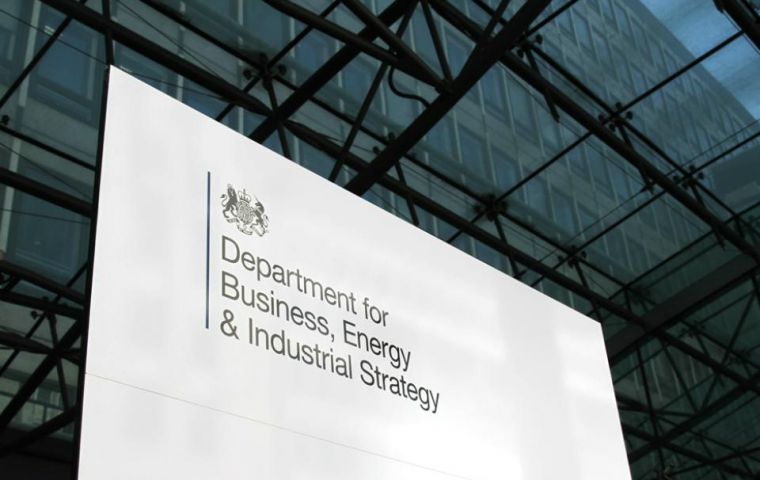MercoPress. South Atlantic News Agency
UK crackdown on money laundering: SLPs channeled US$ 80bn out of Russia
 DBEIS said SLPs have been linked to criminal networks in Eastern Europe and allegedly used in international arms trafficking deals.
DBEIS said SLPs have been linked to criminal networks in Eastern Europe and allegedly used in international arms trafficking deals. The UK Government is to launch a new crackdown on money laundering amid warnings that a century old business scheme designed to help Scottish farmers is being exploited by foreign criminals. Scottish limited partnerships (SLPs) were first created in 1907 for farm holdings, but ministers say their legal structure makes them attractive money laundering vehicles for international crime groups.
The Department for Business, Energy and Industrial Strategy (DBEIS) said SLPs have been linked to criminal networks in Eastern Europe and allegedly used in international arms trafficking deals. It said its research showed that in one complex money laundering scheme alone, a network of 100 SLPs was used to move 80 billion US dollars out of Russia.
It found just five “front men” were responsible for more than half the 6,800 SLPs registered between January 2016 and mid-May 2017. As of June 2017, there were 17,000 SLPs – more than half the total number – registered at just 10 addresses.
Last year, new laws were introduced, designed to make the ownership structure of SLPs more transparent, resulting in an 80% reduction in new registrations.
While SLPs are used by thousands of legitimate businesses – particularly in the private equity and pensions industries – DBEIS is now launching a consultation on further measures to prevent their abuse.
They include a requirement that users have a real connection to the UK and do business or maintain an address in Scotland, closing a loophole which means they can be used by anyone around the world.
They are also proposing that new SLPs should be registered through a company formation agent, meaning the “front men” will be subjected to anti-money laundering checks.
Business Minister Andrew Griffiths said: ”The UK has taken a leading role in the fight against money laundering and is known internationally as a great place to work, invest and do business.
“But as we are seeing, especially with Scottish limited partnerships, is that they are being abused to carry out all manner of crimes abroad – from foreign money laundering to arms dealing.
“This simply cannot continue to go unchecked and these reforms will improve their transparency and subject them to more stringent checks to ensure they can continue to be used as a legitimate way for investors and pension funds to invest in the UK.”
The reforms being proposed will apply to all limited partnerships in the UK – which are formed by at least two partners, one of which must be a general partner – who is liable for any debts incurred – and a limited partner who has limited liability but cannot play a role in how the partnership is run.
Scottish limited partnerships differ to those elsewhere in the UK as they have a “legal personality” which allows them to enter into contracts, take on debts or own property.




Top Comments
Disclaimer & comment rulesCommenting for this story is now closed.
If you have a Facebook account, become a fan and comment on our Facebook Page!